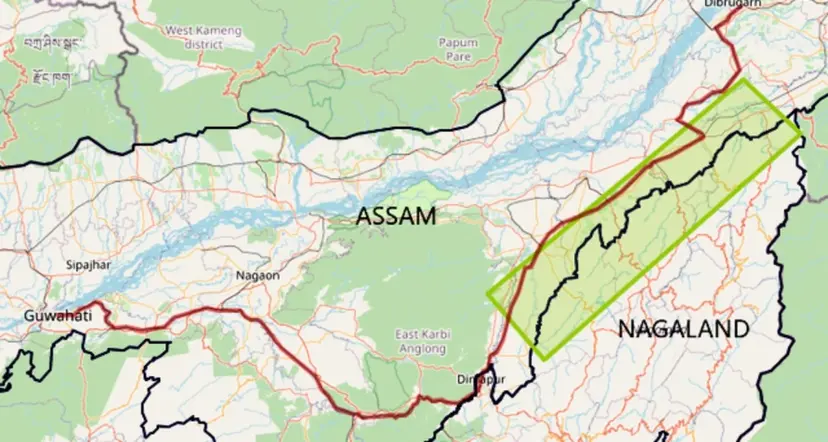The Ralan, Aghunaga Naga Public Organisation (RANPO) has expressed deep concern and strong opposition to the ongoing developments in the Disputed Area Belt (DAB) along the Assam-Nagaland border, particularly over the eviction areas presently occupied by Assam Police forces.
In a press release, RANPO urged the Government of Nagaland to ensure that all discussions and decisions concerning the boundary issue are conducted jointly and strictly on the basis of historical records, authentic documents, and established evidence. It appealed to the State Government to firmly uphold these documented facts in every bilateral dialogue and legal process.
Expressing dissatisfaction with recent activities in the DAB, the organisation pointed out that although the Chief Secretary’s press communiqué described the eviction as a “joint eviction” against illegal Bangladeshi immigrants (IBIs/Miyas), in practice, it was carried out almost entirely by the Assam Government, with no visible participation from Nagaland officials except the Border Magistrate. Even subsequent plantation drives and fencing activities were executed unilaterally by Assam. RANPO stressed that if such operations are to be termed joint, the Nagaland Government must play an active role and ensure genuine participation and representation of the state.
The organisation further expressed alarm over the continued occupation of the evicted areas solely by Assam Police forces, without the presence of Nagaland Armed Police (NAP) or neutral forces, which it said has created an atmosphere of fear and imbalance among the local populace. It strongly urged the immediate deployment of Nagaland’s own security forces, specifically the Indian Reserve Battalion (IRB) and NAP, into the disputed belt. It also called for joint deployment under neutral supervision to prevent further encroachment, harassment, and conflict.
“The security and dignity of our land and people cannot be left solely under the control of the opposing party,” it stressed.
Highlighting the root of the issue, RANPO stated that Miya/IBIs first entered the land under the pretext of cultivation and, with the alleged support of the Assam Government, gradually encroached upon Naga territory, leading to violent clashes, including the tragic loss of Naga lives. Such acts, it maintained, are intolerable and must never recur.
Download Nagaland Tribune app on Google Play

Stating that the Government of Assam has already erected fencing along certain stretches within
the evicted areas, the organization said this unilateral action is highly provocative, illegal, and a blatant attempt to create a de facto boundary in violation of the principle of maintaining status quo until the dispute is amicably resolved.
Stating that the people of Ralan and Aghunaqa, categorically oppose this fencing, which is a direct threat to our ancestral domain and rightful ownership, it reminded that under the 1972, 1979, and 1985 Status Quo Agreements, Nagaland withdrew its outposts from the DAB, while Assam failed to reciprocate, with Assam Police outposts still entrenched in violation of the accords. RANPO demanded either the withdrawal of Assam Police in compliance with these agreements or the restoration of Nagaland’s withdrawn outposts.
In conclusion, RANPO urged the Nagaland Government to ensure that boundary discussions and settlements are based solely on historical documents and authentic records; deploy IRB/NAP to jointly secure the evicted areas of the DAB; oppose and dismantle the fencing already erected by the Assam Government within disputed lands; and enforce strict compliance with the 1972, 1979, and 1985 Status Quo Agreements, ensuring Assam’s withdrawal of its police outposts.
Warning of consequences if the government fails to act, RANPO cautioned that the Nagaland Government would be held solely responsible should any untoward incident occur in the DAB. Nevertheless, the organisation expressed hope that the State would remain committed to safeguarding the territorial integrity, dignity, and security of its people.

